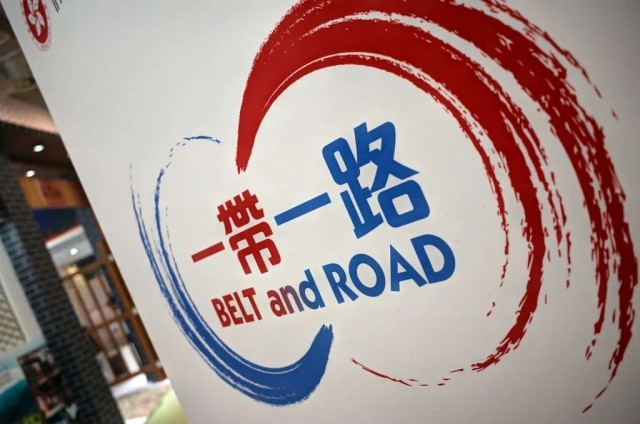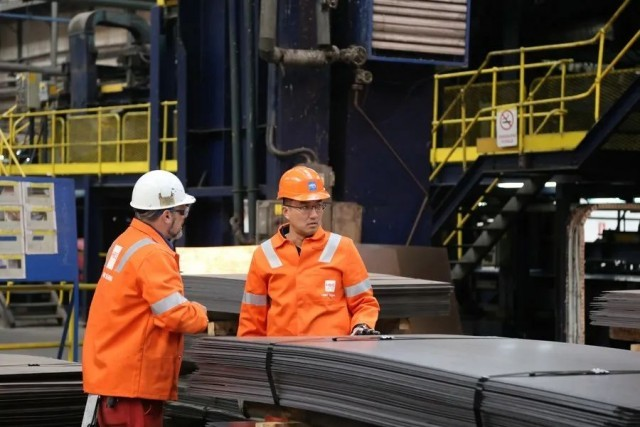
This year marks the 10th anniversary of the Belt and Road Initiative. Over the past decade, the Belt and Road Initiative has brought many development opportunities to co-building countries and won more and more positive responses. At the same time, the United States, the European Union, Japan and other countries have also set up cooperation platforms. How do you view this phenomenon? In the past 10 years since China proposed the Belt and Road Initiative, some people have constantly speculated that China is creating a so-called "debt trap". How do you view these noises? Today let's get to the bottom of all the questions.
The essence of the "Belt and Road" initiative is to promote the rebalancing of the world economy, enabling those developing countries to achieve high-quality development through joint construction of the "Belt and Road", so as to reduce the gap in global development. Since the global financial crisis in 2008, economic globalization has begun to reverse and the gap between the rich and the poor has widened within some countries, and the gap between the rich and the poor has also widened between countries. In this context, the Belt and Road Initiative can help rebalance the global economy and help developing countries withstand the impact of anti-globalization.

After China launched the Belt and Road Initiative, the United States and the G7 established the Global Infrastructure Partnership (PGII) in June 2022, which is an infrastructure plan focusing on infrastructure, climate change and health to support developing countries. In addition, the United States also initiated the establishment of the Indo-Pacific Economic Framework (IPEF), which aims to complement the Indo-Pacific Strategy of the United States and serve the fundamental interests of the United States, rather than focusing on the post-epidemic economic recovery, development and prosperity of the region. It can be said that the US "Indo-Pacific strategy" will only make the region unstable. In addition, the European Union launched the "Global Gateway" strategy at the end of 2021 to focus on connectivity cooperation with developing countries, and in recent years, Japan has also loudly advocated "high-quality infrastructure construction" and launched a series of specific policy measures and benchmarking projects, and fully launched the "high-quality infrastructure partnership" plan at the global level.
Many countries in the world have begun to compete for the development dividends of developing countries in Africa and other regions, and the final result of the competition will definitely benefit those poor developing countries. Now some countries in order to compete with China, we compare the "Belt and Road" to do different platforms, the final result may really turn the "Belt and Road" platform into a global common cause.
Therefore, even if many countries join in to set up their own platforms, the ultimate beneficiaries will surely be developing countries. This is actually a very good result. It should be said that the Belt and Road Initiative is characterized by open competition, which also attracts more economies to join the investment. As the saying goes, "many people add wood to the flame", the approach of open competition further benefits the co-construction of the country.
Global public debt has increased fivefold over the past two decades, far outpacing global economic growth over the same period. The "China debt trap" argument has proved untenable. In the decade since the financial crisis, China has contributed more than 30% to world economic growth on average annually. The debt owed by developing countries to China, on the one hand, has low interest rates. For example, Zambia's bond interest rate in the European bond market is as high as 9.4%, while China's interest rate is much lower than this level. On the other hand, China has clearly accepted the Zambian debt restructuring plan proposed by international organizations, and has made arrangements for the extension of Zambian debt. But Western private creditors did not accept the debt restructuring, leaving Zambia's debt arrangements in limbo. Looking at the world, the absolute amount of debt of developing countries is not large, which is essentially a problem of development, and it is the macroeconomic policies of Western countries that have brought negative externalities to them.

Therefore, from the perspective of development, some developing countries are in debt trouble, and the root cause is not China. China is not the source of the "debt trap", but also an important partner in helping developing countries out of the "poverty trap".

報告顯示,中國電力投資加速增長,預計2024年電網基建投資將超過5300億元。
近日,市場迎來了一則引人注目的消息:工業巨頭3M公司(MMM.N)在本周五公布了其季度業績報告,隨後股價飆升至近兩年來的
最近,外媒給OpenAI算了筆賬,今年可能要血虧50億美元。
近日,巴黎奧運會和世界鐵人三項協會聯合發布了一項重大決定,宣布因塞納河水質污染問題,原定於近期進行的奧運會鐵人三項首次下
當地時間7月18日,法國巴黎發生了一起令人震驚的持刀襲警事件。
近期,一則重大消息在國際舞臺上引起軒然大波,馬來西亞宣布加入金磚國家。
調查發現,互聯網和智能手機的使用幹擾了韓國近五分之一學生的生活。